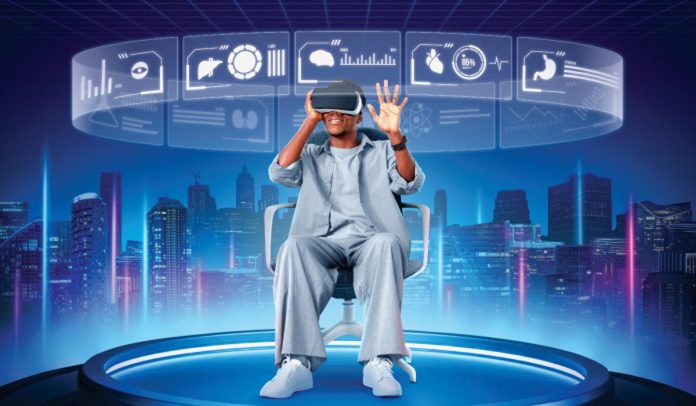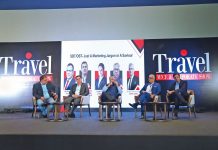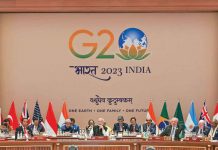From the integration of AR-powered mobile apps to the rise of hybrid events, the M!CE sector is witnessing a profound shift towards immersive experiences.
There is probably no industry on Earth that gives as much importance to human sensory experiences as the hospitality industry. From the feather-light pillows and warm white lights to the soothing aromas and beautiful interiors, everything is designed to enhance sensory experiences. In their pursuit of catering to human senses, hotels and banquets got a shot in the arm with the arrival of immersive technologies such as Augmented Reality (AR), Virtual Reality (VR) and holographic projection.
The adoption and utilisation of immersive and interactive technologies have been sudden and widespread in the hospitality industry. A while ago, large TV screens were the most common device at meetings, incentives, conferences and exhibitions (M!CE). However, TVs are jostling for space with tablets, VR headsets and other projection devices these days.
There has been a marked change in the way brands want to communicate with their targeted audience and a similar story is playing out on the consumer’s end. The transformation has had an impact on the way events are designed and organized. Event organizers and companies are investing in technologies and capabilities that help in blending the physical and digital worlds for attendees. “Immersive technologies such as VR, AR, and holographic projection are witnessing organic demand in M!CE events. They provide enhanced experiences, engage attendees, and offer unique opportunities for branding and content delivery,” said Mohammad Shoib, Director, Sales, JW Marriott Bengaluru Golfshire Resorts & Spa said.
Fuelling the popularity of immersive technologies is its increasing reach in the hands of consumers. With the integration of new-age technologies in mobile apps, from shopping to home decor, people are using AR-powered apps in their everyday lives. According to the Accenture Technology Vision 2022, 55 per cent of consumers agreed that more of their lives and livelihoods are moving into the digital space. In the same report, 90 per cent of the retail executives said that they expect brands to merge the boundaries between the virtual and physical worlds making seamless navigation between the two a reality. The report holds vital lessons for the hospitality industry as it makes it clear that both brands and consumers are driving the demand for immersive technologies.
The immediate result of the surge in demand for experiential technology is hybrid events. “With hybrid events, companies can have an in-person audience and a virtual one. But it is not just a live-stream. Virtual participants should be able to engage with speakers, participate in Q&A sessions, and network with fellow attendees,” said Sandeep Basu, Associate Director, Development & Operations, Cygnett Hotels & Resorts.
Being at the core of any event, hotels and banquets too have been impacted by the rapid adoption of immersive technologies. Only a few years ago, the use of these technologies required substantial investments in compatible hardware and software. With the technology becoming more accessible, it is gaining adoption across the M!CE sector. A major hurdle being faced by the industry while organizing experiential events is the lack of suitable professionals and infrastructure in India. “Some of the challenges which are faced while organizing immersive M!CE events in a hotel in India, include technical expertise, internet connectivity issues and additional charges for time taken for technical set up,” said Meera Charnalia, Executive Vice President & Head, M!CE, Thomas Cook (India). A slew of upgrades will have to be undertaken to make event venues immersive-tech compatible. “Technology upgrade and audio-visual systems, tweak the layout, enhance lighting and networking, add custom installations, and ensure accessibility upgrades. It is important to understand the unique needs and make the necessary tweaks,” Shoib pointed out.
Supported by an improved learning environment, increased engagement opportunities and remote attendee accessibility options, experiential marketing is gaining ground over typical marketing events. The cost of experiential events, though, would require some time to be on par with traditional events. The requirement of additional gear, increased data consumption, domain-specific hardware and customized venue make hosting immersive events relatively expensive.
Data analytics is a significant technological advancement that has greatly benefitted the M!CE industry. By utilizing data analytics, event organizers can obtain insightful information about attendee behaviour and preferences, which enables them to customize their events to better meet their needs. For instance, through the analysis of attendee data, organizers can identify the most popular sessions, engaging speakers, and interesting topics.
With widespread adoption and major multi-nationals pouring billions into new-age technologies, the cost is likely to come down in the near future. Hotels, marketing agencies and event organizing companies are however, not losing any sleep on the cost as the benefits are apparent. “Despite the increased cost, many event organizers recognize the value of investing in immersive technologies to deliver a truly captivating and memorable experience for attendees. The potential benefits include enhanced attendee engagement and improved marketing outcomes,” Shoaib added.
While technologies like AR, VR and holographic projection have carved a predominant position in the experiential events sector, enterprising brands and organizers are constantly on the lookout for emerging technologies. An overt reliance on limited technologies can be disruptive in the future. Technology experts say that these are emerging technologies and the ecosystem is under development. The final outcome would depend on consumer response and other factors. For instance, the success of VR relies on the investment and development of the Metaverse.
The concept holds immense potential for brands and advertisers. Attendees would be able to visit the venue virtually or check out the layout and offerings in the metaverse before deciding to attend. However, it needs to be seen how the final avatar pans out. It could have wide-ranging ramifications for hospitality and related industries. “One of the most significant contributions of technology to the M!CE industry is the introduction of virtual events. Virtual events have not only allowed organizers to reach a broader audience but have also reduced costs significantly,” Basu said.
Technology has played a crucial role in elevating the industry by providing innovative solutions to enhance the overall experience of attendees and organisers. With Artificial Intelligence taking centrestage, newer immersive technologies are likely to emerge powered by AI. Hospitality players need to ensure they remain nimble and react to trends as they emerge. As Basu concluded, “Test, test and test again—it is vital. Pull off a hybrid event with minimal hiccups, and you could earn yourself repeat business.”
















